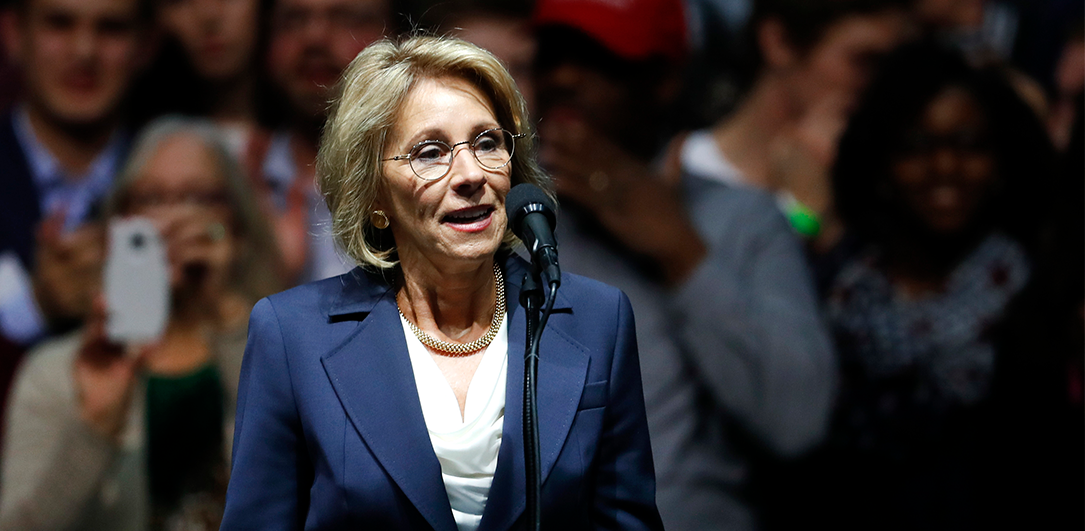Views expressed in opinion columns are the author’s own.
I remember going to the arcade as a kid with $10 in quarters and a vague hope of earning enough tickets for a five-cent plastic kazoo. After several hours of shrewd planning, I’d come a few tickets short and settle for a bouncy ball. As I got older, it became apparent the return on my arcade investment isn’t measured in plastic prizes — it’s the calculus of the arcade. The game itself is the return. The value is in the process.
Betsy DeVos walked into the arcade, went straight to the bored high school kid working the prize counter, and tossed over 50 dollars for one of each prize. And now she’s the Education Secretary! So you see, you can skip the whole process entirely if you’ve got enough scratch! You can have all the kazoos you want!
The rub, of course, is the arcade is actually the theater of due political process. And by skipping the game entirely, DeVos has managed to pull the curtain back on an unsurprising yet jarring truth: Money talks a lot louder than regular people do.
Through the magic of $8.3 million in super PAC donations and direct campaign contributions to individual Republican senators in the last two election cycles, the DeVos family has purchased an enormous amount of influence. I’ll let Ms. DeVos herself tell it: “I have decided to stop taking offense at the suggestion that we are buying influence … We expect a return on our investment.” On the one hand, her ideology seems antithetical to the backbone of what education should be. She’s a major contributor to organizations that oppose LGBT rights. Her husband has explained his fear that schools have become more important than churches in our society. She’s in favor of funneling federal dollars to private institutions that have no obligation to educate all students. Neither she nor her children ever attended public school. She’s hoping to “confront the [secular educational] culture in ways that will continue to advance God’s kingdom.”
On the other hand, it’s not her beliefs and goals that scare me the most — it’s that she’s managed to purchase enough power to potentially implement those beliefs. Ideology shouldn’t have a bearing on whether or not pay-to-play politics are acceptable. After all, I very well could have written this article about Hillary Clinton, if things had shaken out differently.
The issue, as I see it, is the philosophical foundation of democracy is that each person is worth as much as every other person. Obviously, that’s naïve and inadequate in practice. I don’t claim to be nearly as important — or have the same say in policy decisions — as an elected official. After all, that’s the point of a representative democracy. However, until very recently, Betsy DeVos was a regular citizen. I am also a regular citizen (who, let it be noted, has at least attended public school). But now she’s an official with a large amount of political juice because of the magic of dollar signs, and I’m sitting here juice-less, making open-face quesadillas to save money. To me, that calls into question the philosophical underpinnings of our system.
DeVos’ ascension to education secretary is such a flagrant flouting of the supposition of a meritocracy that her inappropriateness for the position is only a secondary concern for me. Pay-to-play is a perfectly acceptable business model for Chuck E. Cheese’s. It’s unacceptable in a political system claiming to be a representative democracy.
I don’t claim to have a solution for how to reduce the prominence of money in politics. I suppose I’ll call Mitch McConnell to see which senators I can sway with a Chipotle coupon and some Twizzlers left over from the Super Bowl. If you can’t beat them, join ’em, right?
Jack Siglin is a senior physiology and neurobiology major. He can be reached at jsiglindbk@gmail.com.



